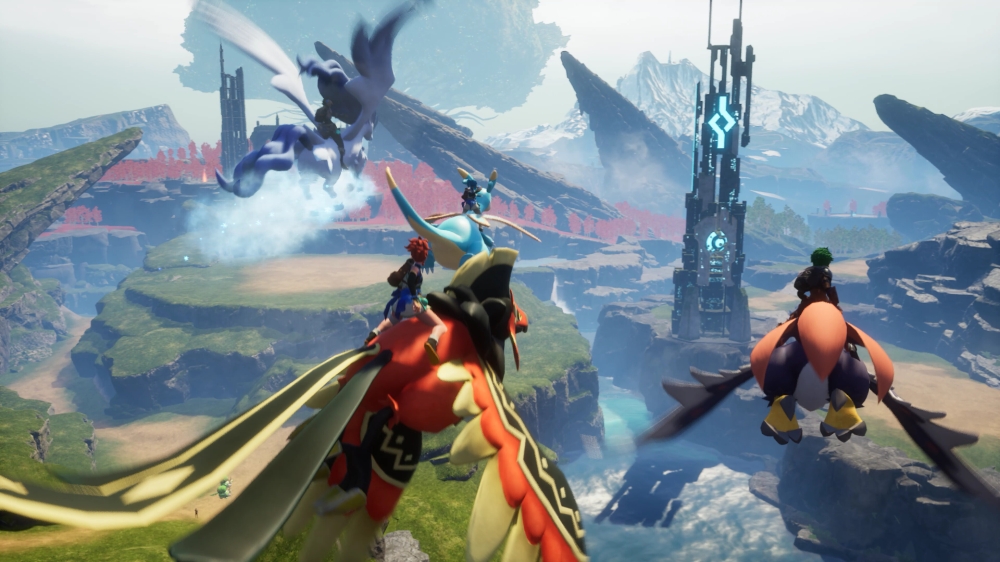KUALA LUMPUR, Sept 20 — When the video game “Palworld” was first announced in 2021, several thoughts went through most in the video gaming community.
The first one was how familiar the game looked and sounded like — it was as if someone decided that the world of Pokémon was not dangerous enough, so more firearms were added in.
Secondly, would this game even be released? Would they not get sued by the developers of Pokémon?
Surprisingly, not only was the indie survival video game actually got released in January this year — it also exceeded expectations and broke various records along the way.
Yesterday might mark the end of that months-long sweet dream, as video game giants Nintendo and The Pokémon Company finally announced a lawsuit over alleged infringement of their intellectual property rights.
What in the Palword is the game?
The game’s joke description of “Pokémon with guns” stemmed from its comedic premise which involves using firearms and equipping animal-like creatures called “Pals” with them.
It was first revealed on June 5, 2021 in an announcement trailer, detailing key features such as open-world survival, crafting, exploration, creature exploitation and the multiplayer focus.
Overall, it was pretty close to how Pokémon is — itself a nearly three-decade old franchise where players catch, train and battle the titular “pocket monsters”.
Launched initially as a PC-exclusive this year, Palworld catapulted to tremendous overnight success, with 15 million units sold as of February this year.
On popular video game platform Steam, over 2.1 million players were in Palworld at the same time during its peak. With this, it ranks as the third-most all-time concurrent players to date (behind “Black Myth: Wukong” at 2.4 million).
“In this game, you can peacefully live alongside mysterious creatures known as Pals or risk your life to drive off a ruthless poaching syndicate.
“Pals can be used to fight, or they can be made to work on farms or factories. You can even sell them or eat them!” the game’s description reads.
However, the game was also mired in controversies during pre- and post-launch, with Pokémon fans and critics quick to call out Palworld through alleged similarities between the designs of several Pals and Pokémon.
Following Palworld’s release, developer Pocketpair has since insisted its game is much closer to survival games like Ark Survival Evolved and Valheim than Pokémon.
In June, Pocketpair’s producer Takuro Mizobe was quoted as saying Nintendo had yet to make a complaint in response to the “Pokémon rip-off” claims.
The game currently holds a “very positive” review status on Steam, with 93 per cent of the 274,802 reviews viewing the game very favourably.

Was baiting Nintendo a step too far?
Nintendo-owned The Pokémon Company had previously released a statement about Palworld when the game first launched in January, vowing that it intended “to investigate and take appropriate measures” against any potentially infringing content.
Subsequently, yesterday Nintendo and The Pokémon Company filed the lawsuit with the Tokyo District Court, seeking an injunction and compensation for damages on the grounds that the game infringes multiple patent rights.
As one of the largest video game companies in the world, Nintendo is widely known for being proactive to assure its intellectual properties in both hardware and software are legally protected.
Nintendo frequently issues DMCA or copyright infringement takedown notices against video game emulators, mods and fan-made games.
The company’s hostile and hardline stance is much maligned within the video game community due to the perceived “excessive” crackdowns the company undertakes by removing anything remotely popular (at most times free, not-for-profit games) that might infringe upon a Nintendo copyright.
In 2022, Canadian hacker Gary Bowser was sentenced to 40 months in prison and a $14.5 million fine for selling chips allowing users to play pirated games on Nintendo’s consoles.
His conviction culminated in “gaming’s most infamous piracy case” after Bowser was to pay Nintendo “between 25 to 30 per cent of his income for the rest of his life” due to the fine he received.






















